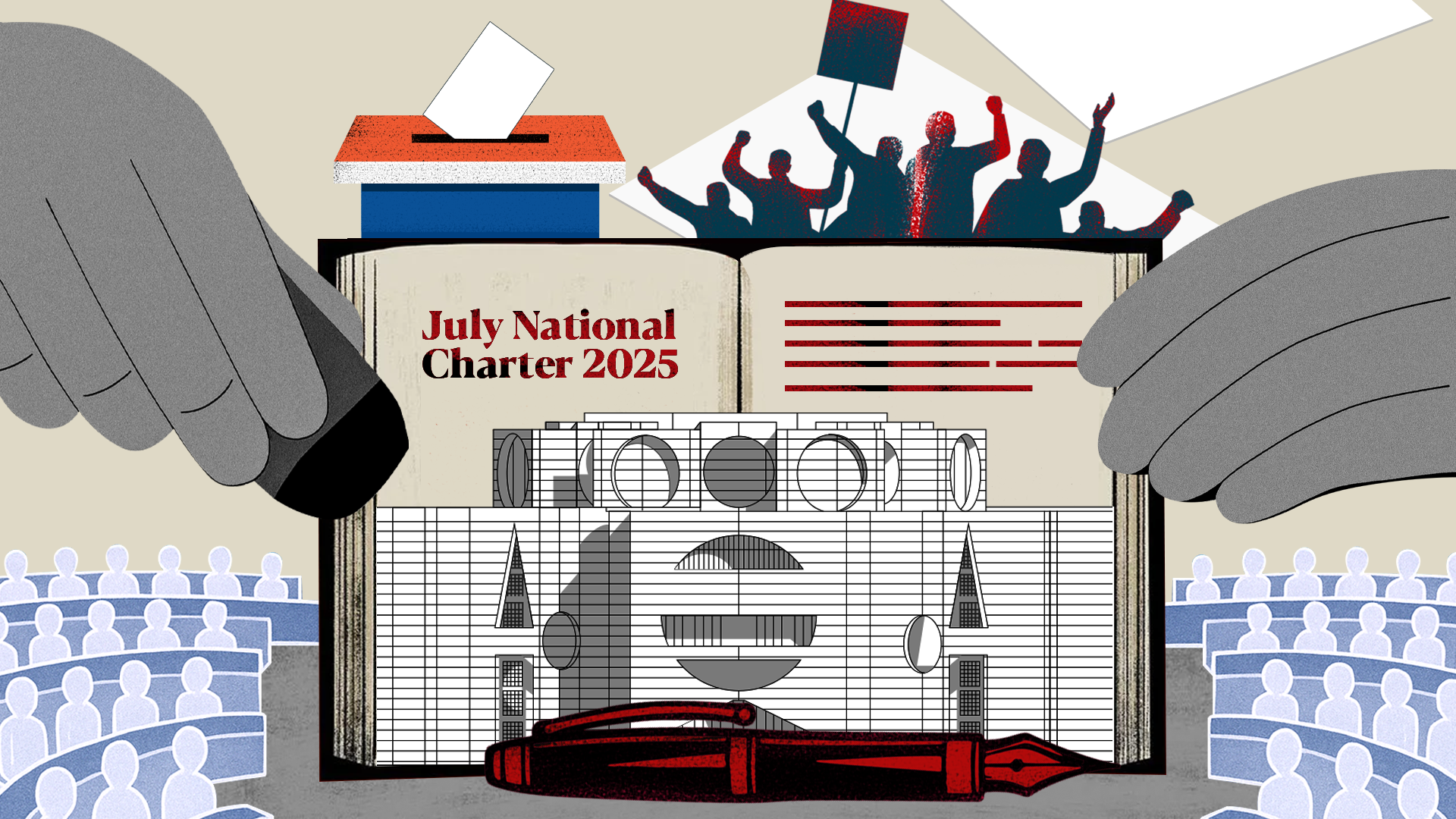Citizens deserve clarity before a referendum vote

With the three main political players gearing up for elections, it appears that Chief Adviser Muhammad Yunus has managed to placate all sides with the four-point referendum proposal. They had fallen apart in bitter disagreement over the July charter ever since its signing in October. The chief adviser decided to address the nation as the parties remained entrenched in conflicting stances even after a one-week deadline from the government.
He outlined the key provisions of the July National Charter (Constitution Reform) Implementation Order signed earlier on Thursday, which has so far elicited a mostly favourable response from the parties. They have largely welcomed the order. There has not been much talk about the referendum itself or the order, however, which some have pointed out to be beyond the remit of the current government. The government has also not made any attempts yet to explain to the people what these points mean or even what the July charter really is. This article will strive to illustrate some issues raised by the referendum and other relevant aspects of the order. Let us discuss the four points of the referendum one by one.
Point one says that an election-time caretaker government, an Election Commission, and other constitutional institutions (i.e. the Ombudsman, the Comptroller and Auditor General, and the Public Service Commission) will be constituted in accordance with the procedures described in the July charter.
Except for the Election Commission, BNP had issued notes of dissent on appointments in each of the above. The party has been arguing that the formation of these institutions should be based on specific legislation and not be outlined in a manner that lacks accountability. The charter outlines several options to appoint the head of the caretaker government. While BNP agrees with the first two options, it had submitted a note of dissent when the third option is to be invoked. However, all those notes of dissent appear to have been brushed aside in the referendum.
The second point states that the next parliament will be bicameral. A 100-member upper house will be formed on the basis of proportional representation of the votes received by political parties in the national election. It also states that any constitutional amendment will require a simple majority of the upper house.
Once again, BNP had registered its note of dissent both regarding proportional representation and the requirement of upper-house approval for constitutional amendments. The order again does not appear to heed BNP's notes of dissent. The party had contended that the upper house should reflect the distribution of seats in the lower house and, further, that since upper-house members are not directly elected, they should not have the power to weigh in on constitutional amendments.
The third point obligates the winning parties in the next election to implement the 30 proposals of the July charter that enjoy consensus among all parties. These include increasing women's representation in parliament, electing the deputy speaker and parliamentary committee chairpersons from the opposition, limiting the term of the prime minister, enhancing the powers of the president, etc. This point places a binding commitment on the next ruling party that it must implement these proposals, although they are not exhaustively listed anywhere.
The fourth point states that other reforms mentioned in the July charter will be implemented as pledged by the political parties.
This acknowledges that parties may choose to implement other proposals as they see fit and according to the positions they submitted to the commission. This provision clearly recognises the notes of dissent of different parties, and thus BNP's objections regarding the Anti-Corruption Commission, the energy regulatory commission, or the appointment of the central bank governor will come into play, since none of these are constitutional bodies.
The implementation order also envisions a Constitutional Reform Council that will be effective for 180 working days starting from the first sitting of the incoming parliament. Further, this council will double as a parliament and as a reform council to institute constitutional changes outlined in the July charter. The order states that constitutional reform proposals will require a simple majority of the council to be carried through.
Now, at first reading, it appears that the 180 days amount to six months or more since they are described as "working days". However, there is still a distinction to be made as to whether working days refer to the number of days that parliament will be in session or simply regular weekdays as the rest of us would think of them. If it refers to the parliament's sitting days, then it would take much longer than six months. In fact, it might take up to two years or more for parliament to sit for 180 days, during which time the council would remain operative.
Also, the simple majority requirement does away with the two-thirds majority rule for changing the constitution, which in spirit contradicts the current constitution. This also creates the danger of the ruling party or coalition making other changes to the constitution, or changing parts that were not on the table to begin with. Further, this simple-majority rule would eliminate any requirement that amendments be bipartisan. The two-thirds rule at least assured broader support within parliament.
On the face of it, BNP appears to have softened its stance on most of its objections, as have Jamaat and NCP. Thankfully, it seems parties are willing to move away from their initial positions and gear up for elections.
However, the people still have a right to know, since they will be voting yes or no. The provisions of the charter aside, the points of the referendum itself require thorough clarification from the government so that citizens know exactly what they are voting for and its potential consequences. After all, it is the people whom the government must cater to, not just the political parties.
Tanim Ahmed is digital editor at The Daily Star.
Views expressed in this article are the author's own.
Follow The Daily Star Opinion on Facebook for the latest opinions, commentaries, and analyses by experts and professionals. To contribute your article or letter to The Daily Star Opinion, see our guidelines for submission.




 For all latest news, follow The Daily Star's Google News channel.
For all latest news, follow The Daily Star's Google News channel. 

Comments